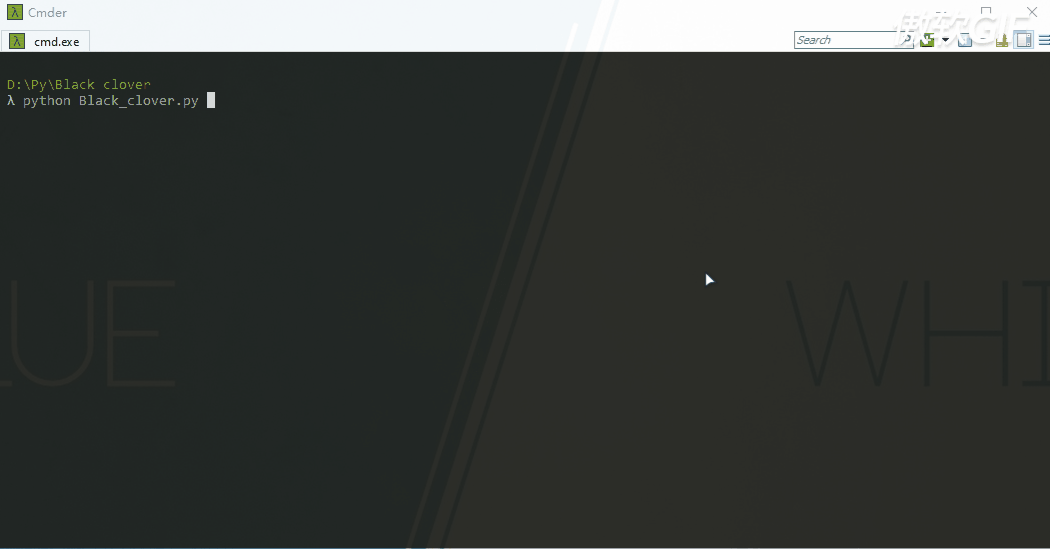本文最后更新于:2019 , 十一月 17日 星期日, 9:05 晚上
网上现在有很多类似的框架,甚至架构已经十分完善的(MSF,Pocsuite3),那我为啥还要重复造造轮子呢?
写了这么多的exp,放在那里很混乱,方便管理与更新
在写框架时,遇到了很多之前不曾想过的问题,在其他的框架的分析时,学到了很多
每次的编写,都是为了以后能够制作
总结:学到了就是我的了
大体结构
lib:存储核心文件poc:存储 poc/exp 文件main.py:启动脚本
Code
颜色与banner
文件:lib\common.py
控制端颜色输出:使用库colorama
至于为什么不使用其他的,因为我看着脑壳痛,拿个最简单的来使用吧
from colorama import Fore,Style,init
def Color(Conversion,color,Info=''):
init(autoreset=True)
if color == "red":
print(Fore.RED + Conversion + Fore.WHITE + Info)
elif color == "green":
print(Fore.GREEN + Conversion + Fore.WHITE + Info)
elif color == "yellow":
print(Fore.YELLOW + Conversion + Fore.WHITE + Info)
elif color == "blue":
print(Fore.BLUE + Conversion + + Fore.WHITE + Info)
else:
print(Fore.RED + "Eroor:Not color")
banner:网上有在线的文字转banner
from colorama import Fore,Style,init
# 转换颜色
def Color(Conversion,color,Info=''):
init(autoreset=True)
if color == "red":
print(Fore.RED + Conversion + Fore.WHITE + Info)
elif color == "green":
print(Fore.GREEN + Conversion + Fore.WHITE + Info)
elif color == "yellow":
print(Fore.YELLOW + Conversion + Fore.WHITE + Info)
elif color == "blue":
print(Fore.BLUE + Conversion + + Fore.WHITE + Info)
else:
print(Fore.RED + "Eroor:Not color")
# banner
def banner():
def banner():
banner = '''
______ _____ _____ _______ _ _
| ____| __ \_ _|__ __| | | |
| |__ | | | || | | | | |__| |
| __| | | | || | | | | __ |
| |____| |__| || |_ | | | | | |
|______|_____/_____| |_| |_| |_|
Author: {}
'''.format("只因不值得")
print(Fore.RED + banner)
print(Style.RESET_ALL)main.py文件进行调用
from lib.common import banner
def main():
banner()
if __name__ == "__main__":
main()
加载模块 – 动态加载
两种方法:
__import__():自带函数进行加载importlib:第三方模块进行加载
文件:Registry.py
在这里我选择了使用第三方模块进行加载
import importlib.util
import importlib.machinery
from lib.common import Color
# 从本地导入模块
def load_file_modules(file_path):
"""
需要加载完整的文件路径
"""
if '' not in importlib.machinery.SOURCE_SUFFIXES:
importlib.machinery.SOURCE_SUFFIXES.append('')
try:
module_file_path = file_path # file_path
# print(module_file_path) 文件路径
module_name = file_path.stem
# print(module_name) 文件名
spec = importlib.util.spec_from_file_location(module_name,module_file_path)
module = importlib.util.module_from_spec(spec)
spec.loader.exec_module(module)
# print(dir(module))
return module
except:
error_msg = "Load module '{0}' failed! ".format(file_path)
Color(error_msg,"red")加载完模块之后,可以使用getattr调用脚本的函数之类
Tab补全
其实写这个框架很久了,一直卡在这个功能这里
尤其是:readline模块,看的我脑壳痛,想自定义tab提示与补全,搞不定。。。肝了很久放弃ing
最后还是使用九世搞得:prompt_toolkit模块
在进行tab补全的时候,顺便把分隔命令一起写了吧。。。
文件:lib/command.py
from prompt_toolkit import PromptSession,shortcuts
from prompt_toolkit.completion import Completer,Completion,FuzzyCompleter
class Console_command(Completer):
def __init__(self):
self.hostname = "Clover" # 标识符
self.global_cmd = ["help", "use", "exit", "search", "version", "clear"]
self.module_cmd = ["run", "back", "set","list","show"]
self.module_cmd.extend(self.global_cmd) # 全部命令
self.poc_paths = [] # 模块路径
# 分隔命令
def parse_line(self,line):
"""
:return: 命令,参数
"""
command, _, arg = line.strip().partition(" ")
return command, arg.strip()
# tab补全
def get_completions(self, document, complete_event,*args, **kwargs):
if "use" in str(document):
for poc in self.poc_paths:
yield Completion(poc,start_position=0)
else:
for command in self.module_cmd:
yield Completion(command,start_position=0)判断当前输入的行中str(document),是否有我们定义的关键字,如果有,则返回我们设定
执行命令
from prompt_toolkit import PromptSession,shortcuts
from prompt_toolkit.completion import Completer,Completion,FuzzyCompleter
class Console_command(Completer):
def __init__(self):
self.hostname = "Clover" # 标识符
self.global_cmd = ["help", "use", "exit", "search", "version", "clear"]
self.module_cmd = ["run", "back", "set","list","show"]
self.module_cmd.extend(self.global_cmd) # 全部命令
self.poc_paths = [] # 模块路径
# 分隔命令
def parse_line(self,line):
"""
:return: 命令,参数
"""
command, _, arg = line.strip().partition(" ")
return command, arg.strip()
# tab补全
def get_completions(self, document, complete_event,*args, **kwargs):
if "use" in str(document):
for poc in self.poc_paths:
yield Completion(poc,start_position=0)
else:
for command in self.module_cmd:
yield Completion(command,start_position=0)
# 执行命令
def get_command_handler(self,command):
try:
get_command = getattr(self,"command_{}".format(command))
except:
Color("Unknown Command: ","red","{}".format(command))
return get_command通过getattr执行我们当前脚本的函数
如:当我们在终端输入
shell > use在我们后端,执行的方式就是:getattr(self,command_use)执行当前类中的command_use方法
所以,我们的大体的执行命令,定义的使用应该以,command_命令
运行框架
文件:lib\command.py
from prompt_toolkit import PromptSession,shortcuts
from prompt_toolkit.completion import Completer,Completion,FuzzyCompleter
class Console_command(Completer):
def __init__(self):
self.hostname = "Clover" # 标识符
self.global_cmd = ["help", "use", "exit", "search", "version", "clear"]
self.module_cmd = ["run", "back", "set","list","show"]
self.module_cmd.extend(self.global_cmd) # 全部命令
self.poc_paths = [] # 模块路径
# 分隔命令
def parse_line(self,line):
"""
:return: 命令,参数
"""
command, _, arg = line.strip().partition(" ")
return command, arg.strip()
# tab补全
def get_completions(self, document, complete_event,*args, **kwargs):
if "use" in str(document):
for poc in self.poc_paths:
yield Completion(poc,start_position=0)
else:
for command in self.module_cmd:
yield Completion(command,start_position=0)
# 执行命令
def get_command_handler(self,command):
try:
get_command = getattr(self,"command_{}".format(command))
except:
Color("Unknown Command: ","red","{}".format(command))
return get_command
# 运行
def start(self):
session = PromptSession()
while True:
try:
command,args = self.parse_line(session.prompt(self.prompt+" > ",completer=FuzzyCompleter(Console_command())))
command = command.lower()
if not command:
continue
command_run = self.get_command_handler(command)
command_run(args)
except Exception as e:
pass- 文件:
main.py
from lib.Command import Console_command
from lib.common import banner
def main():
banner()
command = Console_command()
command.start()
if __name__ == "__main__":
main()
命令例子
文件:lib\command.py
- version
# 版本号
def command_version(self,*args, **kwargs):
Version = "vserion: 0.01 \n"
Color(Version,"red")- exit
# 退出
def command_exit(self,*args, **kwargs):
Color("[-] Exit...","red")
exit(0)
这里,只弄了两个最简易的例子,其他的,就请各位自己尝试编写看看
这个初次框架,尝试的是单例模式,可以根据各自的需要改成多线程模式!
结尾

一个框架的威力,取决于exp的数量与质量
但是,编写一个适合自己使用的框架,是在造灰机的过程中是必不可少的过程